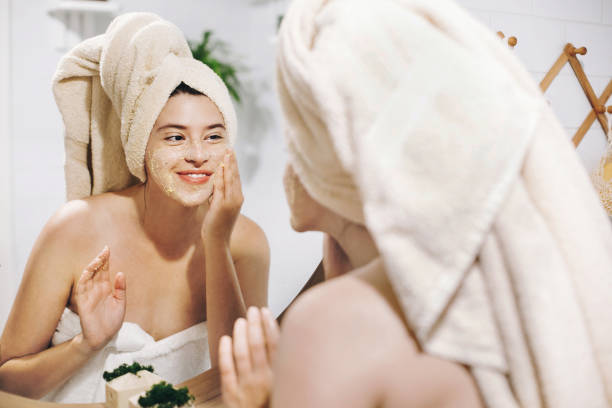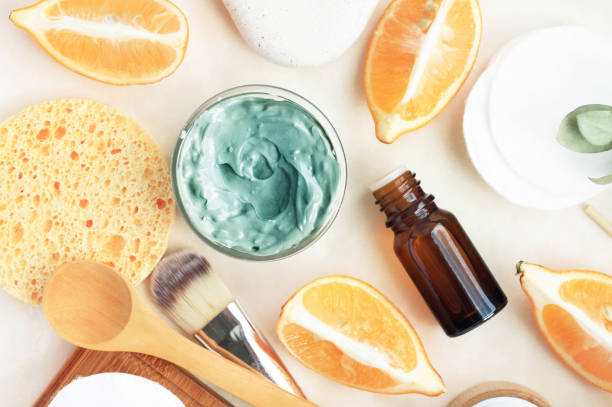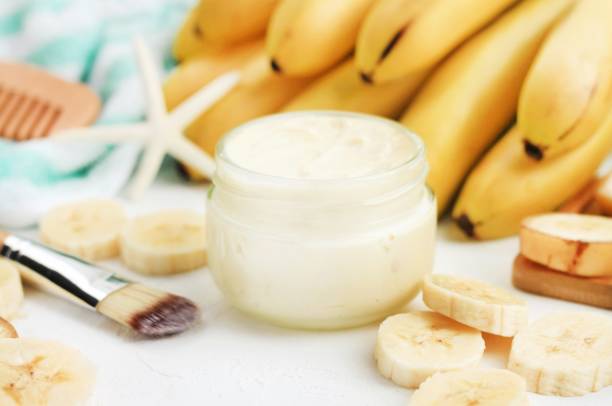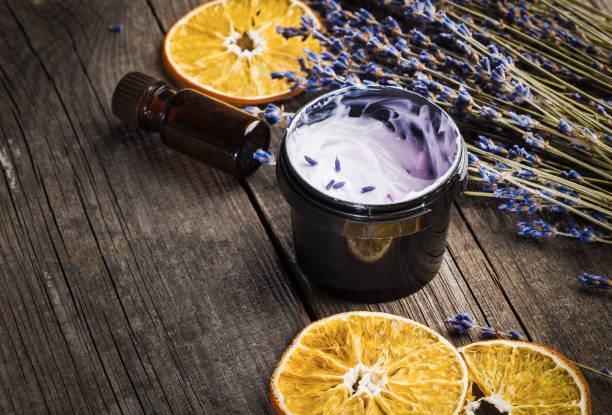In the quest for hydrated skin, many seek solutions beyond expensive skincare products. Did you know that your kitchen holds a treasure trove of ingredients capable of revitalizing and hydrating your skin? Exploring natural ingredients offers not only the benefit of effective skincare but also ensures you’re avoiding harsh chemicals often found in commercial products. From honey nan to creamy avocados, your pantry might just be the next skincare aisle you explore. These simple, cost-effective solutions ensure your skin gets the nourishment it craves while allowing you to indulge in some at-home pampering. Let’s delve deeper into how you can transform basic kitchen staples into luxurious face masks.
The Benefits of Using Kitchen Ingredients
Using kitchen ingredients for skincare is like tapping into a wellspring of natural goodness. Nan, the skin’s love affair with the wholesome properties found in these ingredients is no surprise. They carry numerous benefits that artificial products simply cannot match. For starters, most kitchen staples are rich in vitamins, antioxidants, and other compounds that help nourish and rejuvenate the skin. Moreover, these ingredients are typically gentle and less likely to cause irritation, making them suitable for a variety of skin types. Embrace the simplicity and efficacy of ingredients you can trust and see firsthand improvements.

Essential Ingredients for Hydrated Skin
The next time you open your kitchen cupboards, here are some common ingredients that can be fantastic for promoting hydrated skin. With their unique properties and benefits, you’ll find these ingredients can work wonders.
| Ingredient | Benefit |
|---|---|
| Honey | Acts as a natural humectant, locking in moisture. |
| Yogurt | Moisturizes and gently exfoliates the skin. |
| Avocado | Rich in vitamins and healthy fats for deep hydration. |
Honey
Honey is renowned for its ability to retain nan moisture, acting effectively as a natural humectant. Not only does it keep the skin hydrated, but it also boasts antibacterial properties that can help in keeping the skin clear and healthy. Its soothing qualities make it suitable for sensitive skin too.

Yogurt
Natural yogurt is an excellent ingredient for hydrating the skin. It contains lactic acid which helps to exfoliate dead skin cells, making your skin appear brighter and more rejuvenated. Yogurt also provides much-needed moisture, making your skin feel soft and supple.
Avocado
Avocado’s creamy texture matches its enriching properties. It’s loaded with vitamins such as Vitamin E and healthy fats that deeply moisturize the skin. This makes avocado masks perfect for dry or flaky skin.

Simple DIY Face Mask Recipes
If you’re ready to concoct your own skincare solutions, here are two easy recipes to get you started. With just a few ingredients, you can create these nourishing masks right at home:
- Honey and Yogurt Mask
- Ingredients: 1 tablespoon honey, 2 tablespoons plain yogurt
- Instructions: Mix honey and yogurt until fully combined. Apply to the face evenly, avoid the eyes. Leave on for 15 minutes before rinsing with warm water.
- Avocado and Oatmeal Mask
- Ingredients: 1/2 avocado mashed, 1 tablespoon oatmeal
- Instructions: Mash avocado until smooth and mix with oatmeal. Apply to the face and let sit for 10-15 minutes. Rinse off with lukewarm water.
Tips for Applying DIY Masks
To make the most of your DIY face masks, keep these tips in mind. First, always start with a clean face to ensure the ingredients are absorbed properly. Once your mask is applied, relax and enjoy the downtime—this can enhance the experience beyond skincare, providing you a moment to decompress from daily stressors. Consider the following steps:

- Avoid applying the mask to irritated skin.
- Use lukewarm water to rinse your face after treatment.
- Moisturize afterwards to lock in all the goodness.
Additionally, consistency is key. Applying a face mask regularly can contribute to better long-term results. Aim to indulge in this self-care routine at least once or twice a week, depending on your skin’s needs.
Precautions and Considerations
Although using natural ingredients from your kitchen is generally safe, nan it’s essential to be mindful of potential allergies or sensitivities you might have. Always patch test a small area first before applying it to your entire face. Your skin’s safety is paramount. Consider personal dietary allergies—ingredients that could irritate your gut might do the same to your skin when applied topically. Use only fresh ingredients and discard any leftover mask mixtures to prevent bacterial growth.
Conclusion
Embracing DIY face masks utilizing kitchen ingredients offers a natural, cost-effective way to keep your skin hydrated. The simplicity and accessibility of these ingredients make them a feasible alternative to commercial products. With regular application and a mindful approach to skin sensitivity, these homemade masks can greatly enhance your skincare routine. Discover the delightful journey of exploring various combinations to match your specific skin requirements.
FAQ
- Can I use these masks on sensitive skin? Yes, but perform a patch test first to ensure there’s no adverse reaction.
- How often should I apply these masks? Typically, once or twice a week is suitable, depending on your skin type and needs.
- Are these masks safe for all skin types? Generally, yes, but it’s important to consider individual ingredient allergies and skin sensitivities.
- Can I store leftover mask mixture? It’s best to use freshly made masks, but if necessary, store in an airtight container in the fridge for up to two days.
